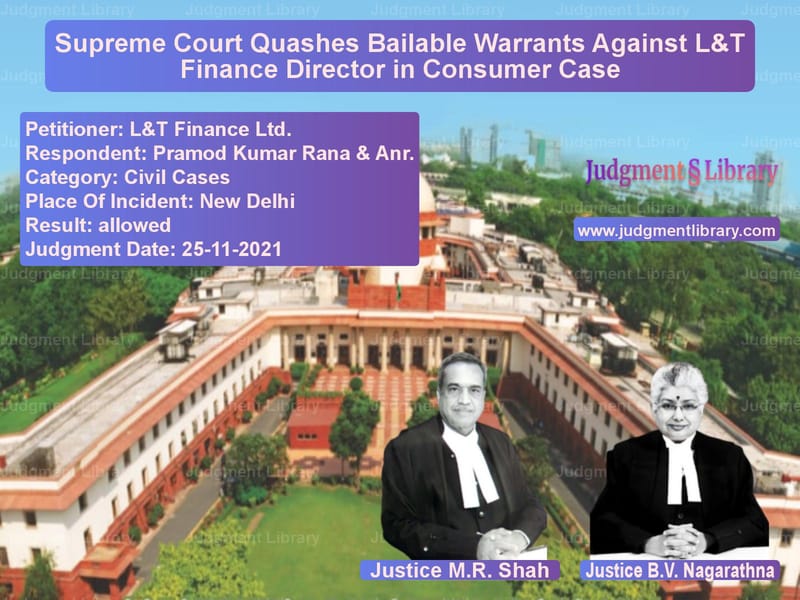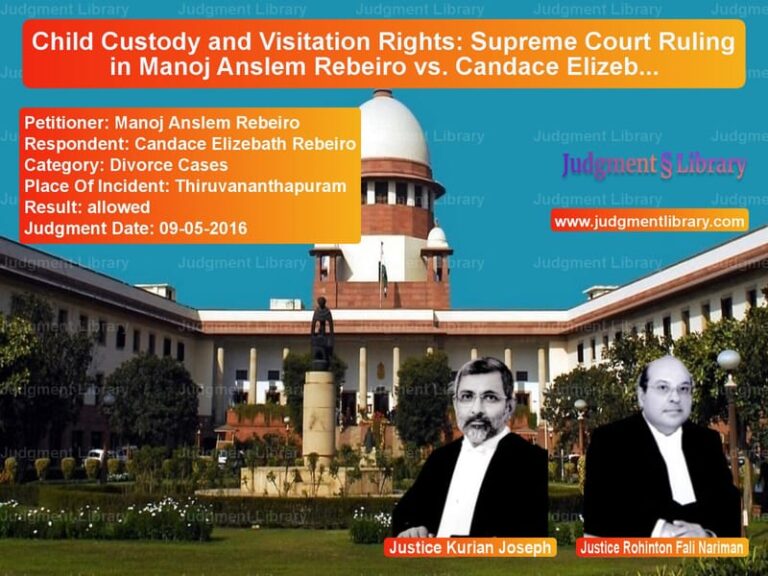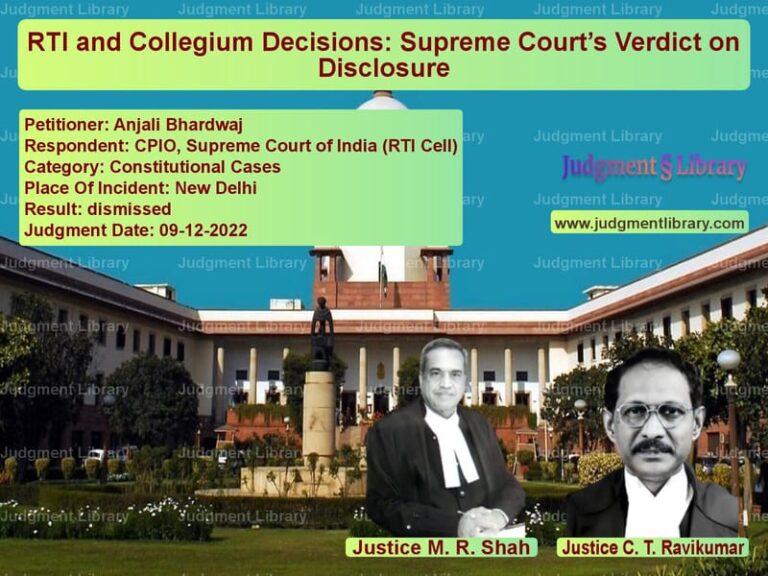Supreme Court Quashes Bailable Warrants Against L&T Finance Director in Consumer Case
The case of L&T Finance Ltd. v. Pramod Kumar Rana & Anr. involves significant questions related to consumer rights, corporate responsibility, and judicial procedures. The Supreme Court quashed the bailable warrants issued against the Director of L&T Finance Ltd., ruling that such an order was premature given that the allegations of coercion and threats made by the complainant had not yet been fully adjudicated.
The case emerged from a consumer complaint filed against L&T Finance Ltd. and Paramount Villas Pvt. Ltd. before the National Consumer Disputes Redressal Commission (NCDRC). The complainant alleged that he was coerced into signing settlement documents under duress. In response, the NCDRC directed senior officials of the respondent companies to appear in person, ultimately issuing bailable warrants against one of them. The Supreme Court found this order unwarranted and reversed it.
Background of the Case
The dispute arose from a consumer complaint (No. 1653 of 2018) pending before the NCDRC. The complainant, Pramod Kumar Rana, had filed the case against L&T Finance Ltd. and Paramount Villas Pvt. Ltd., alleging unfair trade practices and financial coercion.
During a hearing, the counsel for Paramount Villas informed the NCDRC that the matter had been settled. However, the complainant stated that he had been pressured into signing blank papers and had been visited at his residence by representatives who forced him into a settlement. Based on these allegations, the NCDRC issued an order directing senior officials from both companies to appear before it.
When the Director of L&T Finance, Shri Dinanath Mohandas Dubhashi, failed to appear as directed, the NCDRC issued bailable warrants requiring his presence. L&T Finance challenged this order before the Supreme Court, arguing that the complainant’s allegations had not yet been adjudicated, and their representatives had been cooperating with the proceedings.
Arguments by the Petitioner
L&T Finance Ltd., represented by its legal counsel, made the following arguments:
- The company had consistently cooperated with the proceedings through its legal representatives and authorized officers.
- The NCDRC issued bailable warrants without first verifying the validity of the complainant’s claims.
- The complainant had alleged coercion without providing substantive proof, and the matter was still under review.
- The company’s Director, against whom the bailable warrants were issued, had not personally engaged with the complainant, making the order unwarranted.
Arguments by the Respondent
The complainant, Pramod Kumar Rana, contended that:
- He was forced to sign blank documents as part of the settlement agreement.
- Company representatives visited his residence and coerced him into an unfair agreement.
- The NCDRC was justified in directing senior officials to appear to clarify their stance on these allegations.
- The Director of L&T Finance had failed to comply with the NCDRC’s summons, justifying the issuance of bailable warrants.
Supreme Court’s Judgment
After reviewing the arguments and the NCDRC’s orders, the Supreme Court, comprising Justices M.R. Shah and B.V. Nagarathna, ruled:
“The allegations, as have been made by the complainant, are of serious nature and may have grave implications. However, at the same time, the allegations are yet to be considered in detail by the National Commission after giving an opportunity to the opposite parties.”
Read also: https://judgmentlibrary.com/land-ownership-dispute-supreme-court-overrules-lower-court-decisions/
The Court found that the company had been consistently represented before the NCDRC through its legal counsel and authorized officers. It stated that bailable warrants should be issued only as a last resort when a party is deliberately avoiding proceedings, which was not the case here.
“Issuance of the bailable warrants against Shri Dinanath Mohandas Dubhashi, the Director of original opposite party No.2, was not warranted at this stage. Bailable warrants are to be issued as a last resort and only in a case where it is found that the opponent parties are not cooperating at all.”
Additionally, the Supreme Court directed that the review application pending before the NCDRC should be heard and decided on its merits without being influenced by its observations. It left open the possibility of requiring the director’s presence if necessary in future hearings.
Conclusion
This judgment underscores the importance of procedural fairness in consumer disputes. While allegations of coercion and fraud must be taken seriously, courts and tribunals must ensure that due process is followed before issuing coercive measures like bailable warrants. The ruling reaffirms that judicial proceedings must be conducted with a balance between consumer rights and corporate legal protections.
Petitioner Name: L&T Finance Ltd..Respondent Name: Pramod Kumar Rana & Anr..Judgment By: Justice M.R. Shah, Justice B.V. Nagarathna.Place Of Incident: New Delhi.Judgment Date: 25-11-2021.
Don’t miss out on the full details! Download the complete judgment in PDF format below and gain valuable insights instantly!
Download Judgment: l&t-finance-ltd.-vs-pramod-kumar-rana-&-supreme-court-of-india-judgment-dated-25-11-2021.pdf
Directly Download Judgment: Directly download this Judgment
See all petitions in Consumer Rights
See all petitions in Contract Disputes
See all petitions in Judgment by Mukeshkumar Rasikbhai Shah
See all petitions in Judgment by B.V. Nagarathna
See all petitions in allowed
See all petitions in supreme court of India judgments November 2021
See all petitions in 2021 judgments
See all posts in Civil Cases Category
See all allowed petitions in Civil Cases Category
See all Dismissed petitions in Civil Cases Category
See all partially allowed petitions in Civil Cases Category







